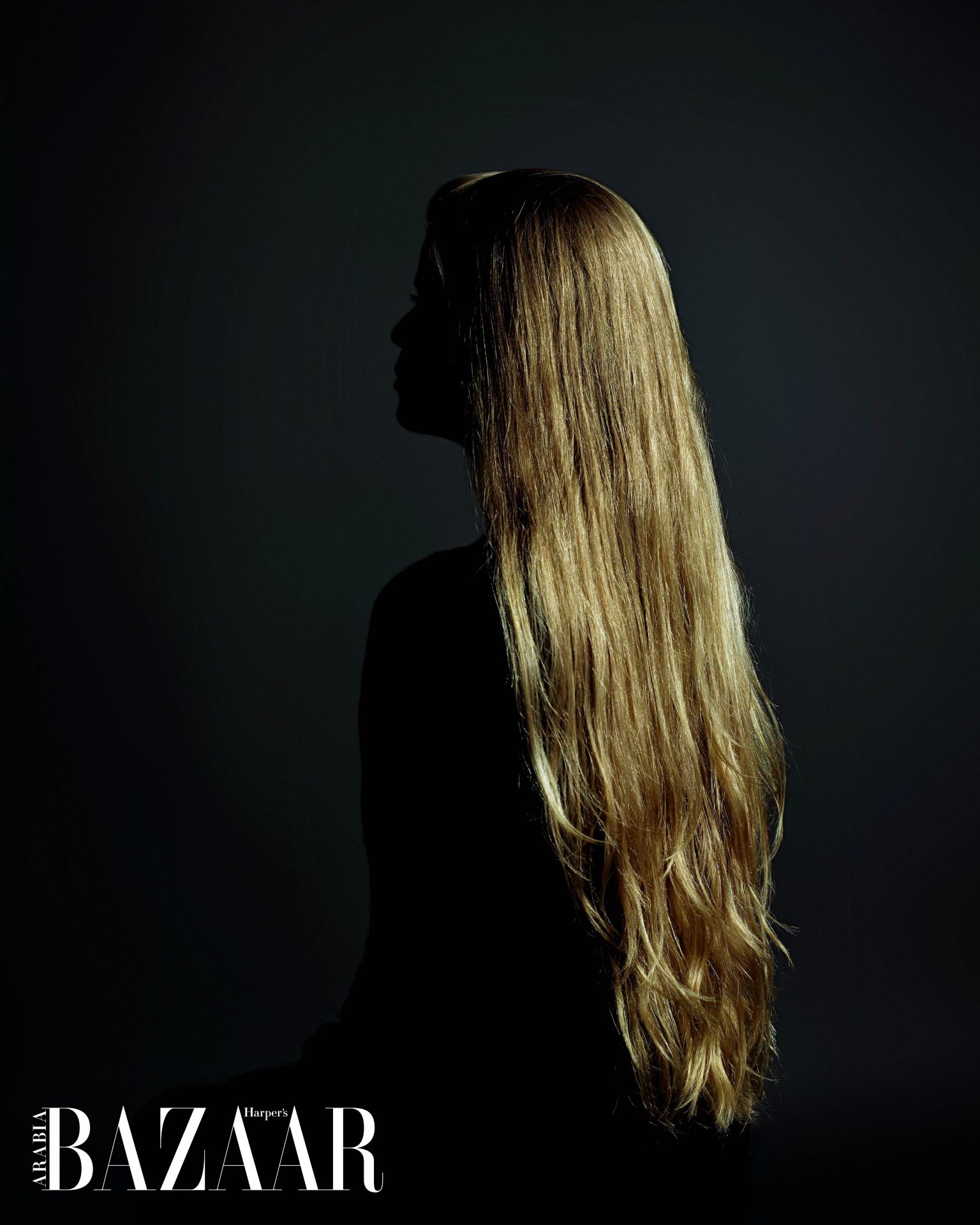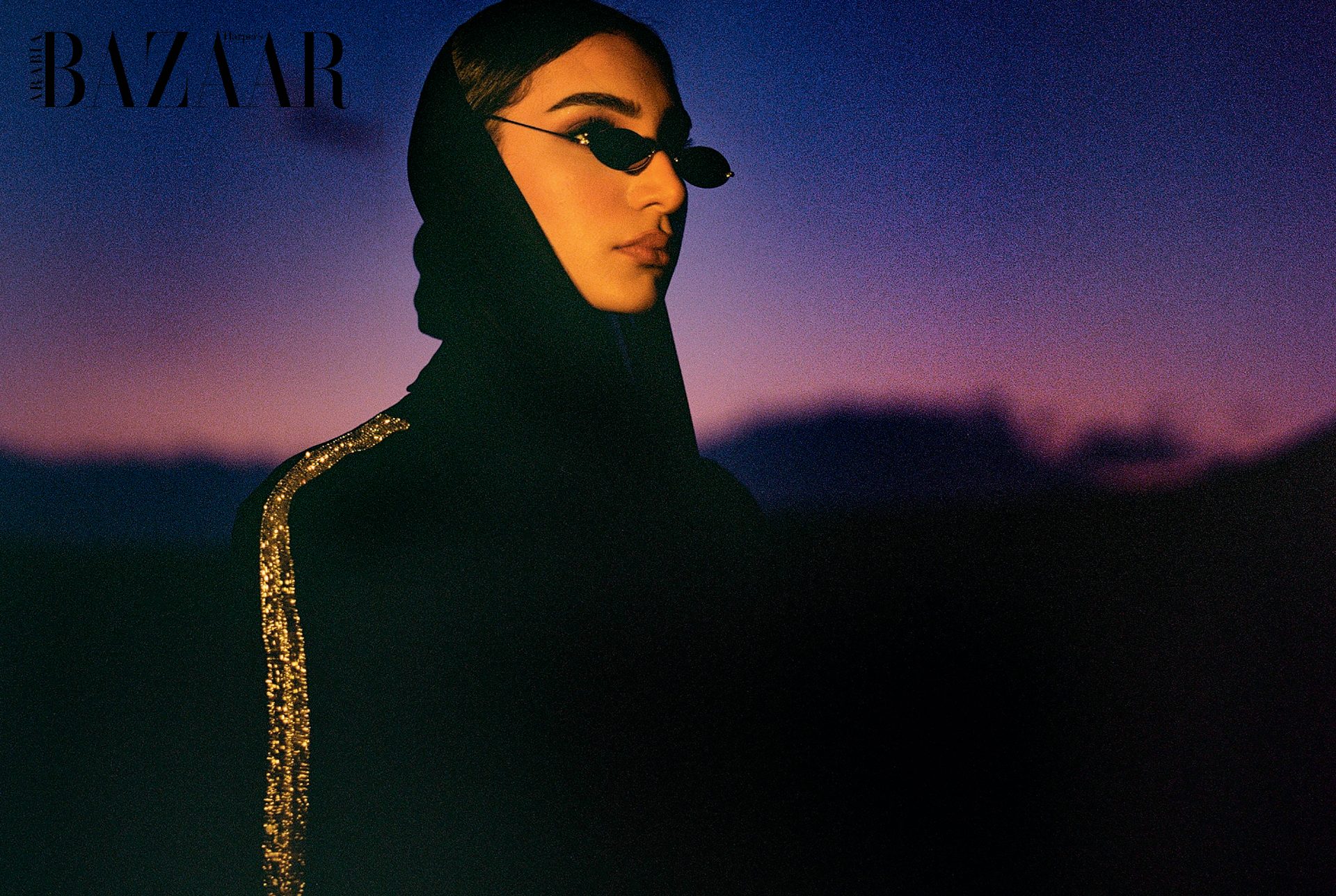
The Feminine Presence: Through Omani Photographer Eman Ali’s Lens
Omani photographer Eman Ali interlaces gender, religious and sociopolitical ideologies to question the intricacies of Khaleeji societies
“It is very clear that women today have stepped into their power and taken control of their own narrative,” asserts Eman Ali, a London-based Omani photographer and visual artist who is challenging the cultural nuances of Khaleeji societies and women’s representation in the Arab world.

Her powerful, cinematic photographs invite the viewer to discover the boundaries and systems that govern our lives, and the untold norms of Gulf societies – the obsession with purity, the denial of history and current reality, and the fight for freedom.

“We certainly have more agency in how we choose to represent ourselves than ever before, yet unfortunately we still get pigeonholed into a very restrictive idea of what a woman, or in the context of this conversation, an Arab woman is and it’s exhausting to say the least.”

Eman’s own journey of self-representation that felt true to her started quite early on, when she decided to turn the camera on herself. What began as a form of self-exploration, slowly evolved into reclaiming her own narrative using her body.

Today the artist has integrated her practice as a social critique, observation, and investigation of the multilayered histories of the Gulf, the Arab world, and East Africa. “Individuals and events have been swallowed up by time or deliberately erased so I’ve become increasingly interested in exploring the absence of things from our history through a contemporary lens,” she expresses.

National identity, history, memory, and power all tie into Eman’s art, with her personal journey always embedded into anything she creates. “I began to explore these themes when I had the strong desire to re-root just before the pandemic. In this process I found a sense of grounding but I also discovered many holes that prompted me to delve deeper into my inquiries.”

“Eman Ali’s work is a powerful manifestation of her Omani heritage creating invaluable dialogues around gender and identity on a global scale,”
Holly Hay
Projects of note include Utendi, an ongoing series about the representation and power of the feminine in Swahili culture, and Succession, a book that explores the relationship of archives to notions of memory and truth through the specific history of Oman.

The former was inspired by an ancient Swahili poem by the mythic figure Fumo Liyongo, whose prose was first transcribed into the Arabic script quite possibly during the time of Omani governance of parts of the East African coast during the 18th century. “It prompted me to travel to Lamu, an island on the northern coast of Kenya, where the Swahili culture – born from multiple exchanges between mainly the Arab, Persian and East African worlds – is uniquely preserved and where I began exploring the representation and the power of the feminine presence in that ancient civilisation.”

In Succession, Eman questions her own understanding of the modern history of Oman, exploring the terrifying unreliability of memory. Through her work, she has showcased the integral role photography plays in reinforcing a sense of national identity. “I worked with archival material from the ’70s which I transformed by re-photographing using an iPhone, and then digitally altering them,” she explains. “The sequencing of images is intentionally fleeting and has an almost dreamlike quality.” There are deliberately no captions in the book because the spreads rely on the power of the photograph to communicate something on a psychological level.

Most recently Eman’s work was showcased at Paris Photo 2022 – one of the largest international art fairs dedicated to photography – in collaboration with the new artist run photography organisation Fellowship, founded by Holly Hay and Alejandro Cartagena.

“Eman Ali’s work is a powerful manifestation of her Omani heritage creating invaluable dialogues around gender and identity on a global scale,” says Holly. Alejandro adds, “Eman’s work is a contemporary voice presenting us with an intriguing view of life in Oman today. Her voice is unique and very strong. It connects with the tradition of documentary photography that considers the representation of everyday life as a way to create art”.

Eman is heroically addressing societal taboos and sensitivities to reveal her, and many others’, truth – she’s offering a bold vision of the region through a transformative and intimately personal lens, and, ultimately, preparing us for a brave new world.
